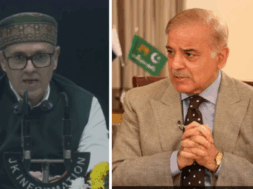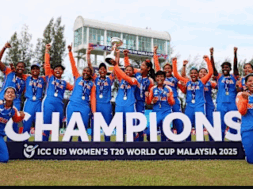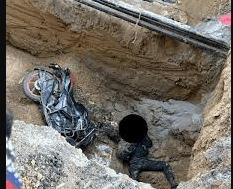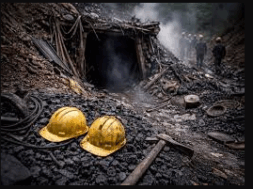
Cracks in Farmers’ Unions, SC Leaves it to Delhi Police to Decide on Tractor Rally on the Republic Day
Manas Dasgupta
NEW DELHI, Jan 18: While the Supreme Court left it to Delhi police to decide whether it would allow the farmers to stage tractor rally in Delhi on the Republic Day, the centre’s delaying tactics seems to be paying off with some cracks developing on the farmers’ unions holding dharna on the borders of the national capital for the last 55 days.
With 10th round of talks between the agitating farmers and the representatives of the union cabinet scheduled to be held on Tuesday in its quest to break the impasse, a majority of the farmers unions dissociated themselves from the move by one of the senior farm leaders to associate the opposition parties in the agitation.
Though the farm leader Bharatiya Kisan Union official Gurnam Singh Chaduni would continue to be part of the 41-member delegation protesting farmers at the 10th round of talks with the government on Tuesday, the heart-burning over his move to steal the show by collecting the opposition leaders on the farmers side is bound to rancor in the minds of other farm union leaders.
In an apparent bid to buy time, the three-member cabinet committee representing the central government in the talks have so far refused to concede any of the major demands of the protesting farmers and stuck to its ground that the government would no roll back the three contentious farm laws though was open to make necessary amendments if loopholes pointed out by the farmers. The farm unions remained adamant that nothing less than the repeal of the acts would end the agitation.
Chaduni, an influential farm leader of Haryana, whose organization last week had forced the chief minister Manohar Lal Khattar to cancel his pro-farm laws “Kisan Mahapanchayat” in Karnal, was believed to had met some leaders of the non-BJP parties including the Congress, the Aam Aadmi Party, the Shiromani Akali Dal and others at Delhi’s Constitution Club on Sunday and reportedly discussed the farmers strike.
The move was disfavoured by most other leaders who like Chaduni were also members of the Samyukt Kisan Morcha formed as an umbrella organization to spearhead the agitation. The Morcha in a statement on Monday clarified that right from onset the farmers had decided to keep the agitation “apolitical” and did not allow any political party to meddle into its affairs or speak from the dais of the farmers’ agitation. They said they had not authorized Chaduni to meet the political party leaders or discuss the farmers issues with them and disfavoured any move to associate any political party with the agitation.
“The Samyukt Kisan Morcha disassociates itself from the activities of Gurnam Singh Chaduni. His decision for an all-party meeting was never approved or authorised. It is his personal activity,” Hannan Mollah, a key member of the Samyukt Kisan Morcha’s “general body” said.
Mollah said all protest activities and agenda related to the movement against farm laws could only be executed after being unanimously passed by the working committee of the Samyukt Kisan Morcha.
Those who signed the statement included the Punjab union leaders Darshan Pal, Balbir Singh Rajewal and Jagjeet Singh Dallewal, as well as Rashtriya Kisan Mahasangh leader Shiv Kumar Kakkaji, All India Kisan Sabha leader Hannan Mollah and All India Kisan Sangharsh Coordination Committee leader Yogendra Yadav.
Chaduni so far has neither dissociated himself from the Morcha nor revoked his meetings with the opposition leaders. A spokesman for his organization-BKU-however claimed that it was the non-BJP party leaders who wanted to talk to Chaduni and not the other way round. “Chaduni had not violated any protocol of the Samyukt Kisan Morcha. If political parties reach out and come to Chaduni for a meeting, how can he say no? He hasn’t shared any stage with political parties,” the spokesman claimed.
Meanwhile, the apex court which scheduled to take up for hearing again on January 20 the petition by the Delhi police and others to direct farmers not to stage the tractor rally on the Republic Day and other bunch of petitions related to the farmers strike, said since holding the ally could give rise to law and order problem, the Delhi police would be the best judge to decide whether the protesters could be allowed to enter Delhi and hold any rally.
The statement was made by a three-judge bench headed by chief justice SA Bobde. Before adjourning the case, CJI said, “The question of entry (of farmers) into Delhi is a law and order problem. You (Delhi Police) are free to invoke your powers. We have told you earlier too that we cannot be the first authority to determine this. You have enough power under the Police Act to determine who should or should not be allowed entry, what terms and conditions are to be enforced and what should be the numbers.”
On Wednesday the bench is also expected to take up the issue of recusal by one of the four members of the committee of experts appointed by through its orders on January 12 for mediating into the farmers-government dispute. The bench will hear both the sides on Wednesday and could even decide on filling up vacancy created by the recusal by Bhupinder Singh Mann (national president, BKU, and All India Kisan Coordination Committee), leaving just three members on the panel — Pramod Kumar Joshi, agricultural economist, director for South Asia, International Food Policy Research Institute, Ashok Gulati, agricultural economist and former chairman of the Commission for Agricultural Costs and Prices, and Anil Ghanwat, president, Shetkari Sanghatana.
BKU- Lokshakti in its response before the court demanded the removal of the remaining three members as well alleging their open bias in favour of the laws as made out by their opinions in public domain. It said, “The principle of natural justice is going to get violated by forming these persons as members of the committee…how they will hear all the farmers on equal parameters when they have already supported these three farm laws.” Instead, the farmer union requested for appointment of a former Supreme Court judge along with farm leaders of protesting farmer unions.
The three laws in question, presently stayed by the top court, are — Farmers’ Produce Trade and Commerce (Promotion and Facilitation) Act, 2020, Essential Commodities (Amendment) Act, 2020 and Farmers (Empowerment and Protection) Agreement on Price Assurance and Farm Services Act, 2020.
While staying the three legislations, the court said that this extraordinary step was being taken to encourage farmers bodies to convince their members to get back to their livelihood, both in order to protect their own lives and health and in order to protect the lives and properties of others.
The farmer unions’, meanwhile, said they were firm on holding the tractor rally on January 26. They further said protesters would not carry weapons or indulge in inflammatory speeches or violence. They also clarified that there will be no occupation or attack on any government building or area during the parade, which will see tractors start their journey from their respective position at the Delhi border and return to the same place, said a farmer leader.
“Farmers will celebrate Republic Day with huge fervour. The tractor parade will move in a circle on the Outer Ring Road, which goes around areas like Janakpuri, Munirka, Nehru Place, Tikri. We hope that Delhi and Haryana Police will not cause us any problems or restrictions. This will be a very peaceful protest since our biggest weapon is non-violence,” said Yogendra Yadav of the Morcha.











